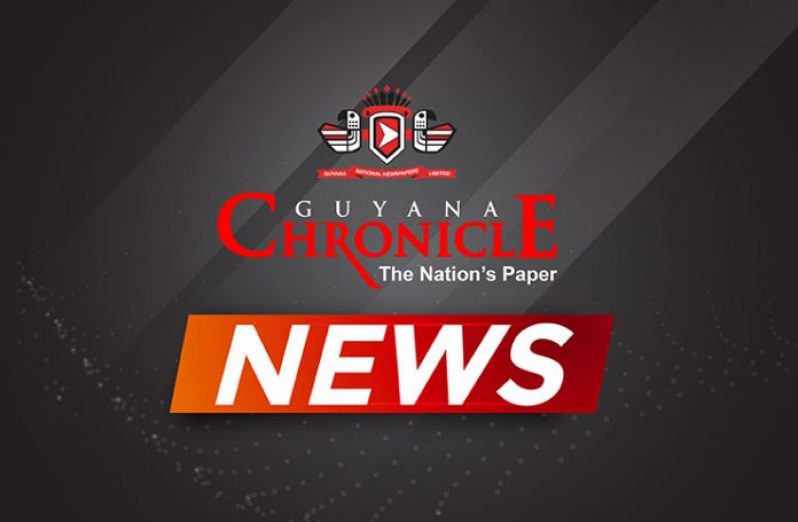…to reduce spread of COVID-19 in Indigenous villages
INDIGENOUS villages are highly vulnerable to the Novel Coronavirus (COVID-19) pandemic, and this vulnerability could be exacerbated if persons, particularly miners and residents of neighbouring Brazil, who test positive for the disease, knowingly enter those villages.
It is against this background that the Guyana Human Rights Association (GHRA) is suggesting that legal charges be instituted against miners and persons, who test positive for the disease in Brazil, and purposely visit Indigenous villages in Guyana.
Just recently, a Guyanese man with Brazilian citizenship, who is the Rupununi’s first confirmed COVID-19 patient, fled the isolation facility at the Lethem Regional Hospital compound.
The man, Hamlet Da Silva, lives in Brazil and he would make frequent trips across the border. The man discharged himself from the isolation facility during Monday night and crossed the border illegally. He was arrested in the town of BonFim on Tuesday morning by Brazil’s federal police.
The Guyana Chronicle reported that news of Da Silva’s case has created much worry in sections of Region Eight. Concerns in the villages of Monkey Mountain and Paramakatoi spiraled on Tuesday, since the man travelled to those areas in a sick state a week ago to sell ‘tasso’ among other commodities. He was actively communicating with persons within the two villages, medical sources in the region noted.
Reports are that the man spent six days at Monkey Mountain and he informed residents that he had malaria.
As a consequence of this and other prevailing issues involving miners and truck-drivers, the GHRA, in a press statement, said the COVID-19 Health Emergency Committee of Region Nine (Upper Takutu-Upper Essequibo) made a decision to reduce movement in South Rupununi.
“Thanks to resolute action by Toshaos in the South, national authorities are beginning to acknowledge the seriousness of the situation,” said the human rights body.
The association believes that this realisation has its origins in the stand-off between communities and the authorities over miners being prevented from transiting the communities en route to their mine-sites.
GHRA cited an incident last Sunday, when a truck driver/miner forced his way through checkpoints on the basis of being given permission by the Regional Executive Officer (REO) and the Lethem police. The decisions taken at the level of the Region Nine committee, tacitly acknowledge the legal authority of Toshaos and Village Councils to determine who should access their communities.
The association said the Regional Executive Officer (REO) of Region Nine, Carl Parker had acknowledged issuing passes to facilitate truck-drivers avoiding the curfew and criticised the Toshaos for exceeding their authority. Although the REO is reported as stating that such letters were only issued to persons in possession of a prior letter issued by either the Ministry of Natural Resources or Guyana Geology & Mines Commission (GGMC), senior spokespersons in the ministry told the GHRA that they are unaware of any such letters having been written.
“The action of the Toshaos is hopefully setting the pace for the COVID-19 task force to adopt a far more stringent approach to the problem of Brazil being the most vulnerable and porous route for a major COVID-19 invasion in Guyana.”
“The Bolsonaro Government’s irresponsible behaviour in dismissing the virus as a ‘slight flu’ has sent Brazilian death rates to be the seventh highest in the world, a current average of 1000 + per day, with Manaus an epi-centre,” said the GHRA.
Moreover, the “ease” with which people can cross the Takutu River and enter Guyana despite the border being officially closed, suggests that the security problem is still being addressed in a reactive, rather than pro-active manner.
ESSENTIAL SERVICE
“The controversial issue of mining being declared an ‘essential service’ is also at the centre of this problem. Many ordinary Guyanese are struggling to provide for their families while abiding by the lockdown, while miners driving 500 miles through Amerindian communities, putting many people at serious risk en route is considered an essential activity,” said the GHRA.
This kind of contradiction discredits the official anti-COVID-19 strategy, fosters indignation and needs to be addressed urgently. The situation described reinforces the need to remove mining and mining-related activities from the list of essential services, which are exempt from some COVID-19 restrictions.
GHRA, therefore, called on the COVID-19 task force to take immediate steps to address all of the issues which have surfaced in Region Nine.
As with its initial response to the Toshaos, the authorities needed the stimulus of the COVID-19 infected Brazilian, who passed through many communities, before taking action. It is also noteworthy that the police in Lethem have warned they will start to prosecute people who break the curfew, said the GHRA.
The association believes that should the virus really take hold in the Rupununi it will then definitely spread to the entire country. The association said the call for a complete lockdown of Lethem from coastal contact reflects the only realistic strategy.



.jpg)








